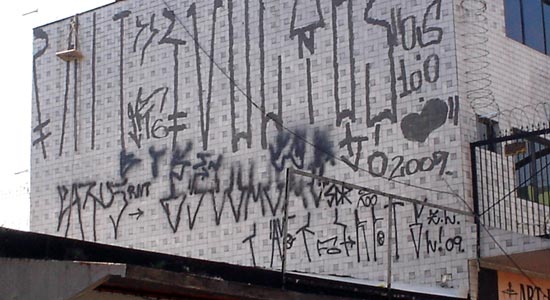Alasdair Roberts’ songs are difficult to digest. Like a large pill you can’t quite swallow, that lodges toward the back of the throat, they are dense, layered, poetic ballads coupled with a forcefully picked acoustic guitar, abrasively fragile vocals and a thick Scottish accent. His new self-titled album is not the kind of thing you put on while washing dishes. But it’s the kind of album you go back to again and again, trying to parse the lyrics, trying to understand why these songs grate at the base of your spine. Roberts will be guest editing magnetmagazine.com all week. Read our brand new feature on him.

Roberts: In September, I was very fortunate to have the opportunity to do three concerts in Brazil—in the cities of Porto Alegre, São Paulo and Recife. In my limited experience of the place, both on the ground and in my background reading, I sensed a huge, beautiful and bewildering country full of colour and life but also with a hugely complex, extremely dark and violent history. I was fortunate to be staying with some good old Scottish friends in São Paulo. I imagine that being alone for the first time without guidance or companionship in that vast metropolis would have been very difficult, so I am hugely grateful to my friends for their hospitality. I also thank them for introducing me to many wonders of Brazilian life, too many to mention—but one thing that remains in my mind when I think back now on walking with them through the streets of São Paulo was pixação—the city’s typical form of graffiti, visible on many of its buildings. When I first saw it I thought it odd that Brazilians had developed a form of script that so closely resembles Norse runes—I wondered fancifully whether these writings, once decoded, might proclaim such things as “I, Snorri, carved these words by my own hand—may Odin protect me.” In fact with greater familiarity that strange resemblance becomes less noticeable, and I understand that pixação is used primarily for serious sociopolitical commentary (for which there is, of course, as much need in Brazil as in any other nation you care to name) rather than for Viking-style bragging.
Video after the jump.






